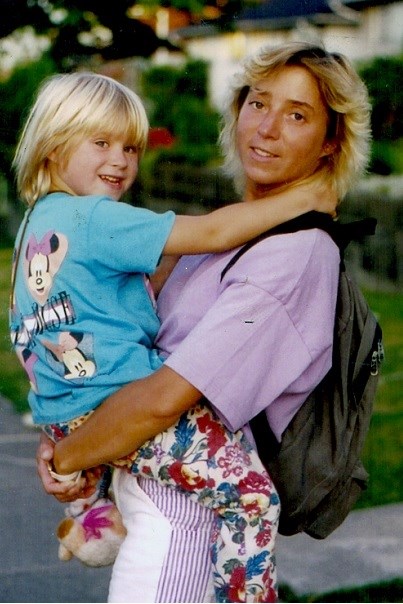More than 10 years after his sister’s death, a Burnaby man is “relieved, elated and thankful” at the news the Criminal Code is one step closer to being amended.
Helen Sonja Francis, a long-time nurse at Burnaby Hospital and a single mother of two children, was killed on Feb. 28, 2005, after the car she was in crashed near Houston, B.C. The driver of the vehicle was her ex-boyfriend Christopher Courtney, who was allegedly impaired at the time. The courts, however, deemed the incriminating evidence inadmissible because the warrant to obtain a blood sample was faulty – it was granted 13 minutes after the Criminal Code’s four-hour deadline. (In order for investigators to get a blood sample, a warrant must be obtained within four afters an accident occurs.)
In Francis’ case, the RCMP officer had been delayed by a power outage. He was forced to write the warrant application by hand and drive to a nearby hospital to fax it to a justice of the peace in Burnaby.
Rather than a criminal charge, Courtney faced two counts under the Motor Vehicle Act – driving without due care and attention and excessive speeding. He was given a 30-day jail sentence, a $2,000 fine and a three-year driving ban, according to Francis’ brother George Sojka.
Since that day, Sojka has advocated the warrant deadline be extended to six hours.
On Monday, Burnaby South MP Kennedy Stewart stood in the House of Commons and introduced a private member’s bill called Helen’s Law that would do exactly that. (He originally tabled a petition on the issue when the Conservatives were in power, but it didn't proceed farther than that.)
Sojka told the NOW he felt “great” about Bill C-276.
“This is what I’ve been looking for, but we still gotta take it one or two steps further. It’s gotta reach a conclusion, or else I just won’t quit this thing.”
At the time of his sister’s death, Sojka recalled feeling defeated and deflated, with no recourse for action.
“I don’t even know how to put it into words. You’re just at a loss, basically, and you know something is wrong with our system if they go ahead and let this person walk because of a time frame,” he said.
Even though his sister’s case has exceeded the seven-year statute of limitations, Sojka is happy Helen’s Law could prevent similar incidents from happening.
“You’re not going to have (accidents) like this strictly happening around cities and around hospitals. Things are going to happen outside urban areas. When it comes down to a person taking someone’s life, there’s gotta be something a little more to it than that. There needs to be accountability.
“It’s too late for my sister to have justice, but at least for others … it’ll give them justice for their families.”
Sojka added he’s confident, but skeptical the federal Liberals will pass Helen’s Law.
“I think they will adopt it because you have to give justice to those persons whose lives have been written off. There has to be some sort of consequence to this.
“It’s going to take a lot of work still ahead to convince this government to push it through. We’ll wait and see what happens. It’s not going to be an easy mission.”
Sojka went on to thank Stewart for his dedication to his sister’s cause over the years.
If the Trudeau government chooses not to incorporate Helen’s Law into legislation, Sojka said he’ll continue to petition the feds.
“We’re going to carry on.”



